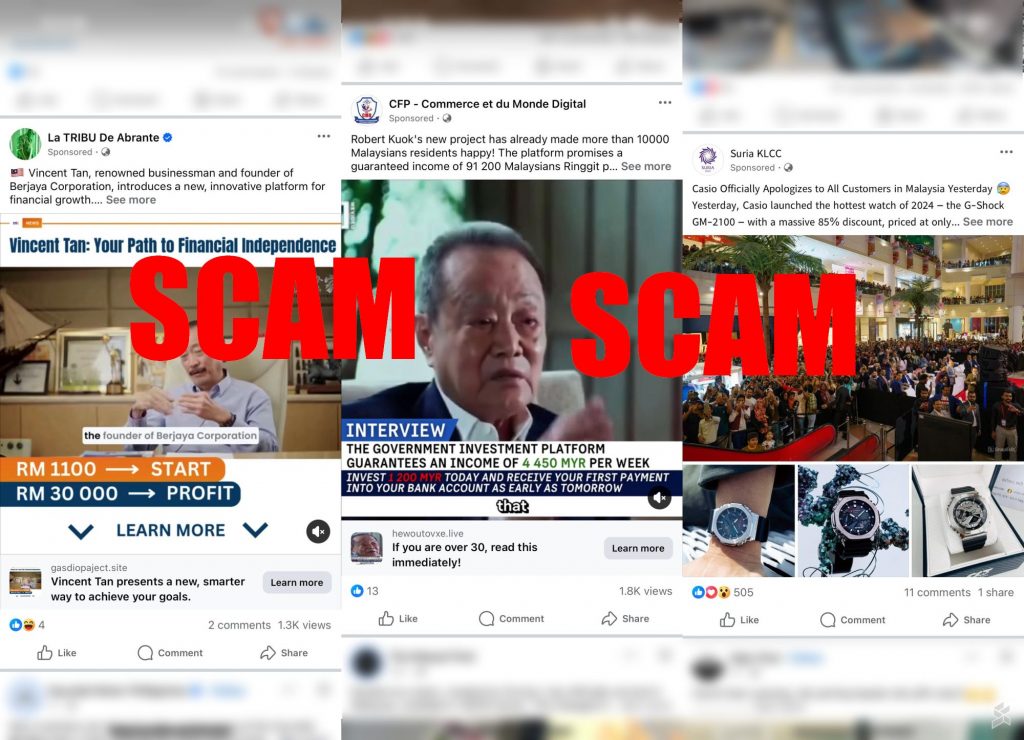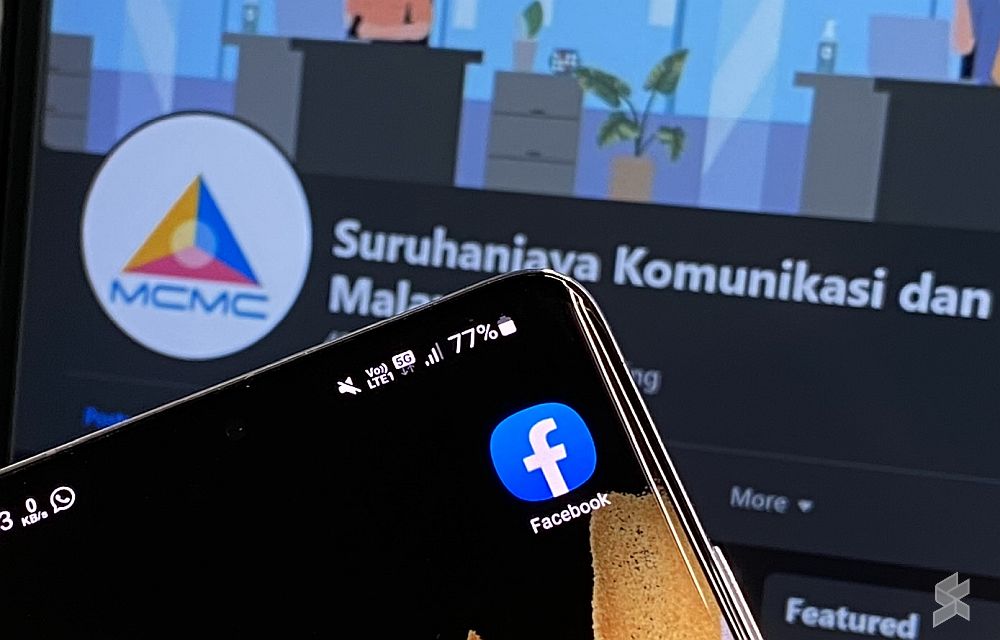Meta, the parent company of Facebook, Instagram and WhatsApp, reportedly earned about 10% of its 2024 revenue from ads promoting scams and prohibited goods. That’s equivalent to about USD 16 billion (RM75.8 billion).
The findings were based on internal company documents obtained by Reuters.
According to the report, Meta’s social media platforms have been serving an estimated 15 billion scam ads per day which include fake investment schemes, fake online shops, illegal online gambling and sale of prohibited medical products.
The report highlighted that despite being aware of the scam issue, Meta allegedly chose to limit its enforcement action against these scam ads to minimise the impact on its ad revenue.
Meta charged scammers more for ads instead of banning them

According to Reuter’s report, Meta only bans advertisers if it their systems are 95% certain that the ad account is running scam ads. If the suspicion falls below their set threshold, the company charge these suspected scam advertisers higher advertising rates which is reportedly known as “penalty bids”.
It is reported that in 2023, Meta’s safety staff had estimated about 100,000 valid scam ad reports were made by users weekly. However, 96% of these reports were mostly ignored or incorrectly rejected by Meta.
One internal memo sighted by Reuters allegedly revealed that Meta has set “specific revenue guardrails” to restrict staff from taking enforcement actions that could impact more than 0.15% of total revenue. That’s equivalent to about USD 135 million (about RM640 million) in the first half of 2025.
Responding to Meta’s findings, Meta spokesperson Andy Stone said the internal estimate of 10.1% of revenue generated from scam ads was “rough and overly-inclusive” and claimed that the actual figure was lower as it also included “many legitimate ads”.
As quoted by Reuters, the Meta representative said, “We aggressively fight fraud and scams because people on our platforms don’t want this content, legitimate advertisers don’t want it and we don’t want it either.”
He added that over the past 18 months, Meta has reduced user reports of scam ads globally by 58% and so far in 2025, they have removed over 134 million scam ads.
Meta only prioritise enforcement in countries with higher regulatory risks

Unsurprisingly, the reported also highlighted that Meta’s leadership decided to prioritise enforcement against scam ads in countries where it feared near-term regulatory action.
The internal document also mentions that Meta intends to cut down the percentage of revenue from ads promoting scams, illegal gambling and prohibited goods from 10.1% in 2024 to 7.3% by the end of 2025. By end of 2026, it aims to further reduce that figure to 6% and to 5.8% in 2027.
Meta remains unlicensed, Malaysians continued to get screwed by scam ads

Following the revelation, Communications Minister Datuk Fahmi Fadzil had criticised Meta for profiting from scam ads while Malaysia’s regulators are using a lot of resources flagging them. He said the Malaysian Communications and Multimedia Commission (MCMC) had spent 22 years of manhours just to report scam ads on Meta’s platforms from January to October 2025. He suggested that Meta should be billed for the time spent reporting scams on their behalf.
Fahmi said Meta makes about RM2.5 billion in ad revenue from Malaysia in 2023 alone. If the reports are true, he said that means Meta has made RM250 million from ads promoting scams and online gambling in our market.
Despite introducing the social media regulation, Meta appears to be running without a licence for close to a year.
Under the regulation, it is illegal for social media platforms with 8 million Malaysian users to operate without the required ASP licence from MCMC. The licensing requirement is aimed at ensuring a safer online environment for Malaysians and to hold platforms accountable towards online harms including sexual crimes against children and financial scams.
Based on our search, only TikTok, WeChat and Telegram have obtained the required licence under the regulation.
According to the MCMC, appropriate action under Communications and Multimedia Act 1998 Section 126 will be taken against any applicable service providers that continue to operate without a licence from 1st January 2025.
If convicted, the service provider can be fined up to RM500,000, or face imprisonment up to 5 years, or both. The platforms can be liable for a further fine of RM1,000 for every day during which the offence is continued after conviction.
Unfortunately, we have yet to see the MCMC and the Malaysian government take serious action to penalise Meta for its failure to comply with the licensing requirement.
The government is mulling for social media platforms to conduct mandatory eKYC (electronic Know Your Customer) to protect children online and to ensure community guidelines set by the platforms are properly enforced. Instead of focusing on users, perhaps it is more worthwhile for the government to require these social media platforms to verify its advertisers before allowing ads targeting Malaysian users.
Meta seems to have no issues complying with the Singapore government’s directive by introducing a verification requirement for all Facebook advertisers targeting audiences in Singapore. It also introduced transparency requirements to disclose the name of the individual or company paying for the ads.
However, the question remains: is Meta compelled to comply with Malaysia’s regulations, given that it has failed to obtain a licence to operate in the country?
0 comments :
Post a Comment